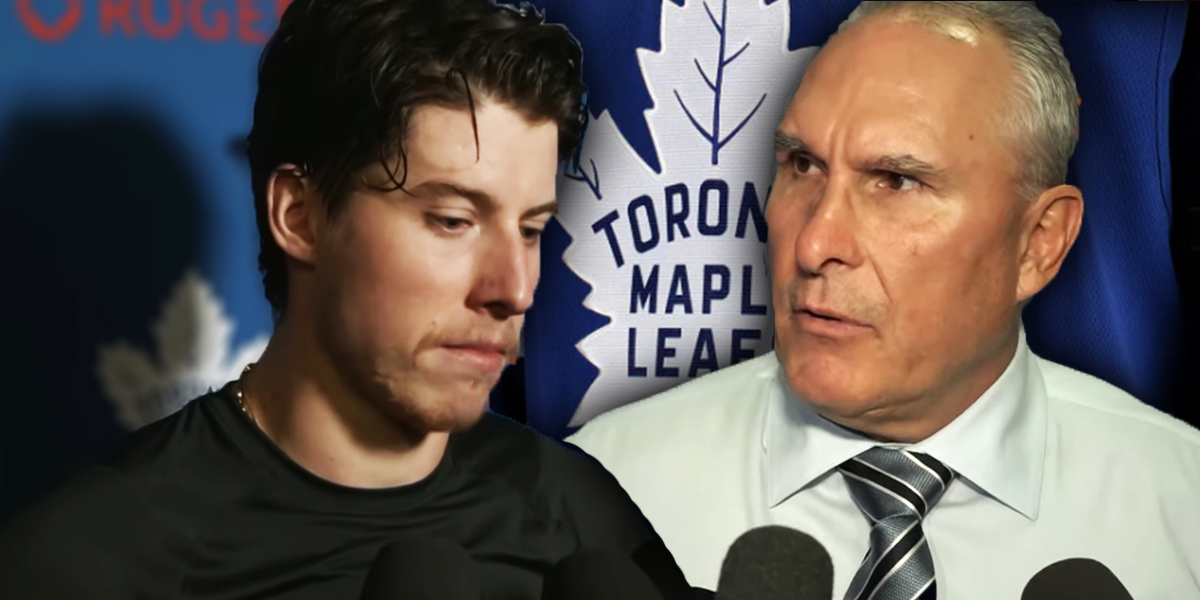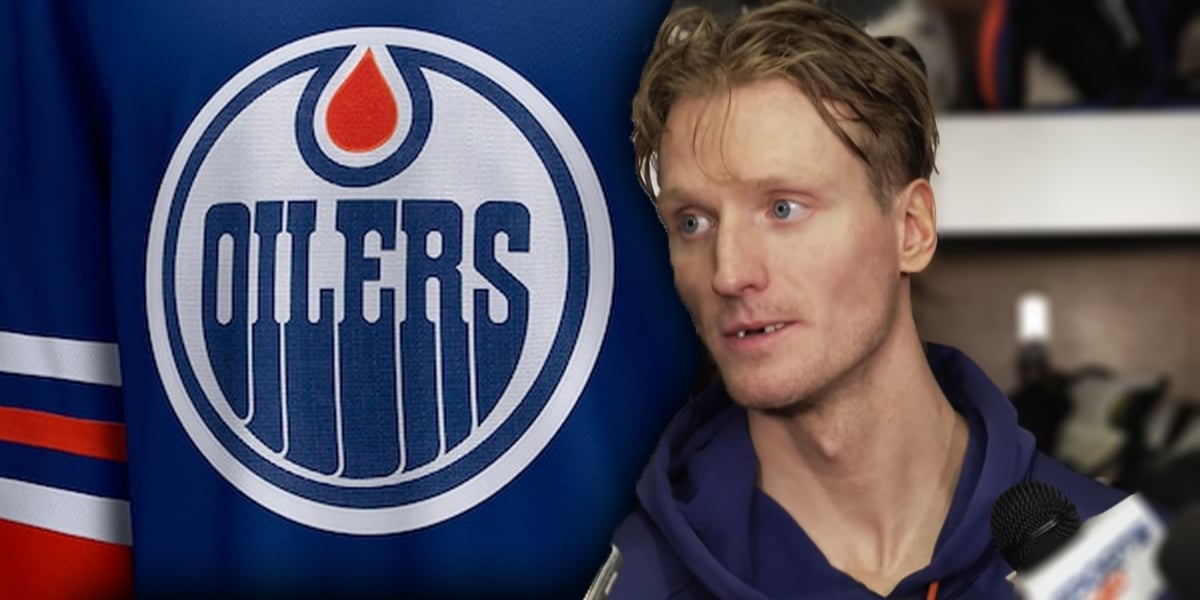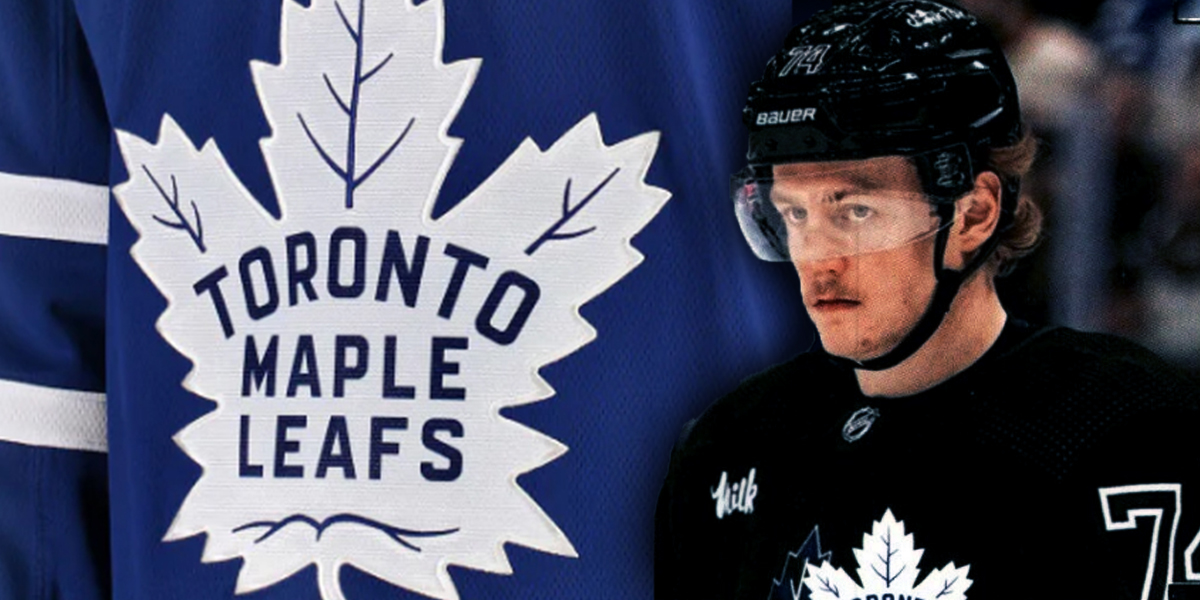The controversy when it comes to officiating in this season’s NHL playoffs is at an all-time high. Every year there are soft calls and missed infractions, but this year, for some reason, there’s a new level of dumbfoundery (I don’t think that’s actually a word, but it should be) in respect to what these referees are seeing and why they’re calling what they’re calling. Fans and players want to know what the standard is… and most of them don’t.
Media members, podcast hosts, and fans, along with the players, find themselves talking about the topic of officiating more than perhaps any other. While names like Connor McDavid and Leon Draisaitl are wowing fans with their individual efforts, or the Toronto Maple Leafs are finally looking like they’re going to win a playoff series as a team, the takeaway from almost every game is how bad a call was or how the officials got it wrong. Just look at the below video from Spittin’ Chiclets, where hosts Ryan Whitney and Paul Bissonnette couldn’t avoid talking about it to start their show.
Jeff Marek and Elliotte Friedman suggested things are always this way and that maybe the players are just complaining more. Friedman suggested that arguing about the officiating is a loser’s lament. He did admit that it feels like a lot more bad calls are being made this year, but does that really matter? If the argument is that this is always a problem, why is the NHL not trying to find a solution?
The Latest Example of NHL Officials Being Incompetent
Even over the past 24 hours, the NHL officials got it wrong again and the league had to step in. Cale Makar of the Colorado Avalanche was suspended for one playoff game after his interference hit on Seattle’s Jared McCann. There was clearly no puck in sight and Maker rode McCann into the board, injuring him and leaving the Kraken short-handed. McCann is likely to miss Game 5. The play was deemed a five-minute major, then reduced to a two-minute minor after review, but the NHL DoPS suspended Makar 24 hours later. Imagine if Seattle had lost that game and Makar was a factor in the game-winning goal?
Dom Luszczyszyn of The Athletic wrote back in May that the league, fans, and players have simply come to accept that the officiating is an embarrassment. He pointed out how Rachel Doerrie, formerly of the New Jersey Devils, rewatched every McDavid shift for the series against the Winnipeg Jets in 2021 and counted “over 30” infractions that were missed. McDavid didn’t get a single call and the Oilers didn’t get a power play from the unreal work he did throughout that series. It was unequivocally a difference-maker. Why are the refs getting away with this and why for so long now?
The NHL Needs a Way To Hold Officials Accountable
There are a few ways the NHL can try to solve this problem outside of simply firing the worst officials in the league. As much as that would be the obvious answer, an even more obvious result would be that trying to find better officials would also be challenging.

First, make the refs available to the media. If they have to explain after a game why a certain call was made, one of two things will happen. The officials will either place more importance on getting it right so as not to have to subject themselves to scrutiny from the media (of which there will be a ton) or they’ll call the game by the book a lot more often than they do.
Second, in the case where media availability is not an option, allow the officials a chance to post a video like the NHL DoPS does explaining the decision of supplemental discipline. Whether the actual official in question does or the league does on their behalf after a consult with the official, the least that comes of it is some insight for fans and players as to why the call was made or not made. And, if the officials can’t explain it sufficiently to the league, this acts as a review system that the NHL can use to determine who gets to officiate games moving forward.
Third, hold a meeting with the GMs after the season where the officials and the folks who run the teams can get together in a forum that allows for a better understanding of what each side is thinking. The players and coaches are likely too emotional to be a part of said meetings, but the GMs can relay the messaging, while the officials walk away with a better understanding of what drives these teams absolutely bat-sh– crazy.
Some of these ideas have been implemented in other pro leagues and some of these things work well. There’s no reason this can’t work in the NHL.




